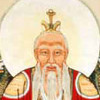“ When competition, or other fortuitous circumstances, lessen his profits, he can reduce the wages of his workmen almost at pleasure, and make from them what he loses by the chances of business. Should the workmen strike, the master, who is a rich man, can very well wait without being ruined until necessity brings them back to him ”
Alexis de Tocqueville, Democracy in America (1840). copy citation
| Author | Alexis de Tocqueville |
|---|---|
| Source | Democracy in America |
| Topic | competition pleasure |
| Date | 1840 |
| Language | English |
| Reference | |
| Note | Translated by Henry Reeve |
| Weblink | http://www.gutenberg.org/files/816/816-h/816-h.htm |
Context
“But, when once men have embraced that line of life, we have already seen that they cannot quit it again, because they soon contract habits of body and mind which unfit them for any other sort of toil. These men have generally but little education and industry, with but few resources; they stand therefore almost at the mercy of the master. When competition, or other fortuitous circumstances, lessen his profits, he can reduce the wages of his workmen almost at pleasure, and make from them what he loses by the chances of business. Should the workmen strike, the master, who is a rich man, can very well wait without being ruined until necessity brings them back to him; but they must work day by day or they die, for their only property is in their hands. They have long been impoverished by oppression, and the poorer they become the more easily may they be oppressed:”
source



